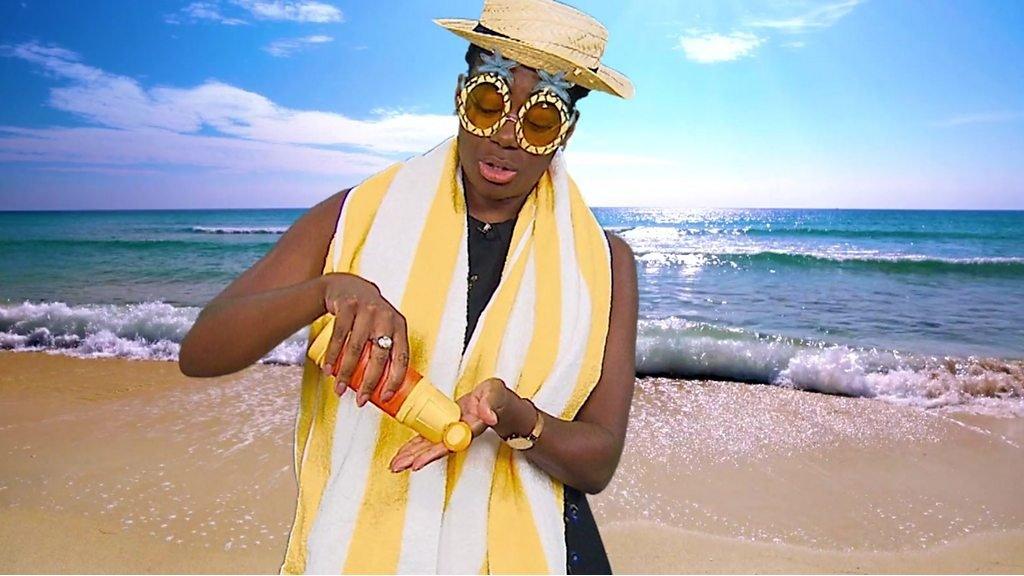Water safety: What to consider when swimming outdoors
- Published
Top tips on staying safe in and around water
When the weather is warmer it can be tempting to go for a splash - and while some places are safer with lifeguards, swimming in the sea or in rivers, canals, lakes and reservoirs during the hot weather can be dangerous.
The Royal Society for the Prevention of Accidents (ROSPA) advises to learn about water hazards and what to do if there's an emergency.
It's important to remember that, even though you may be may be a good swimmer in a warm indoor pool, that doesn't necessarily mean that you will be able to swim in cold water outside, and you could get into serious trouble - putting yourself at risk of drowning.
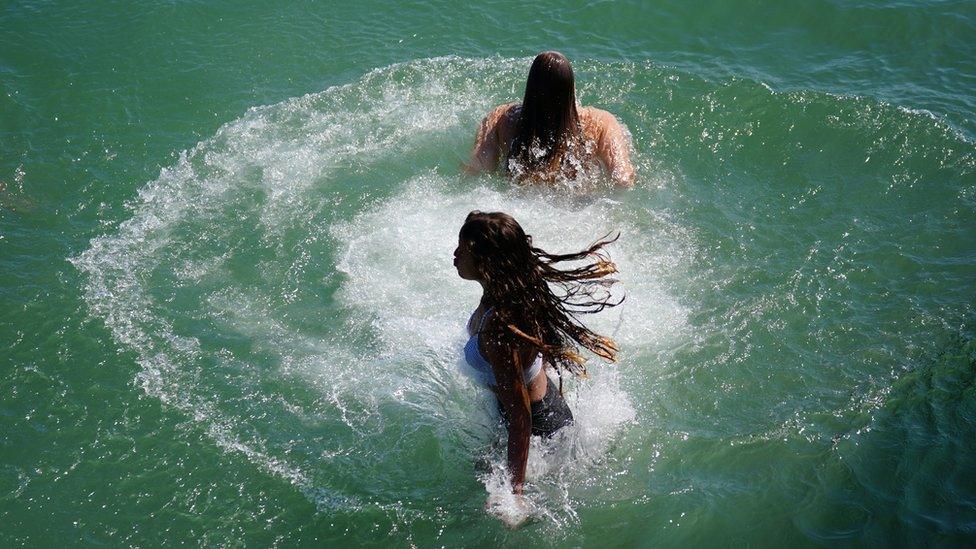
Swimming outside can be fun but make sure you do it with an adult and where there is a trained lifeguard nearby
It is very cold, and suddenly getting into cold water can lead to cold water shock
There may be hidden currents
It can be difficult to get out (steep slimy banks)
It can be very deep with sudden drop offs
There may be hidden rubbish, e.g. shopping trolleys and broken glass, that can harm you
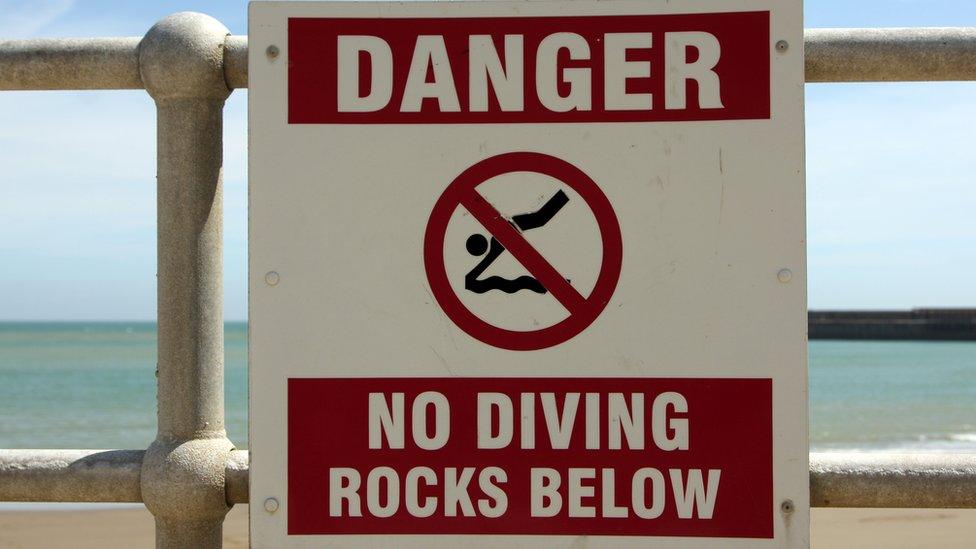
It is important to take notice of any warning signs
What should you do around open water to stay safe?
Lee Heard, Director of the Royal Life Saving Society (RLSS) told Newsround that if you are thinking of cooling off in open water, then you should only do so if "you are supervised by a well-trained and professional lifeguard."
Here are the charity's top tips for staying safe:
Look for lifeguards - if you are looking for a place to cool off, always find a swimming site that has a lifeguard
Be extra careful around water; it is colder than it looks - water at open water and inland sites is usually much colder than it looks. Cold water causes your body to go into shock - affecting your ability to swim and self-rescue
When in the water stay close to the edge - always swim parallel to the shore, that way you're never too far away from safety
Always stay near friends or family - if anything goes wrong, you've got someone there to help
Learn basic survival, self-rescue and rescue skills
Don't take any risks - you may think it is fun to play around in water unsupervised or to jump off rocks but it can be very dangerous and any help or rescuers may not be close by.
- Published28 May 2021
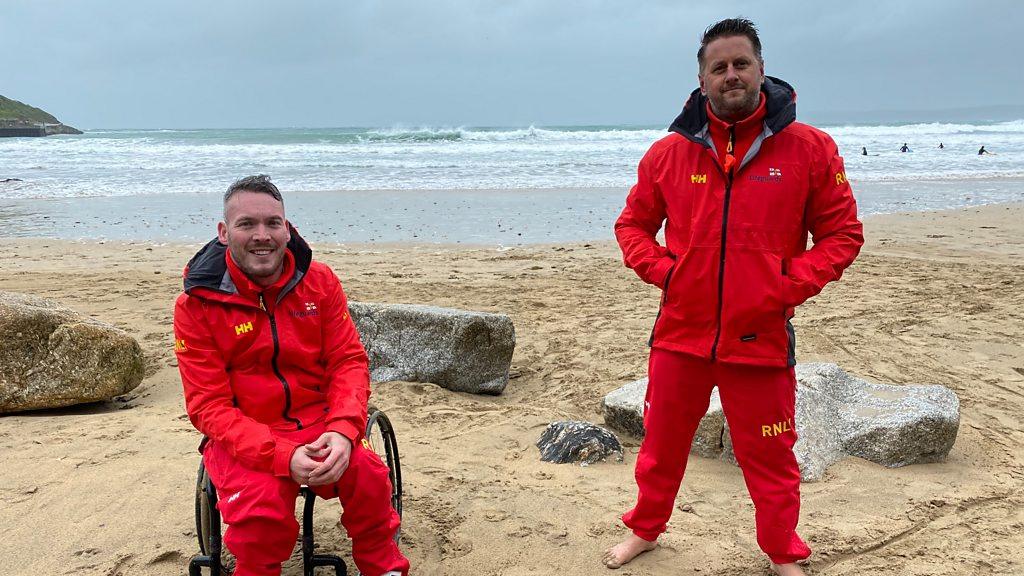
- Published23 July 2021
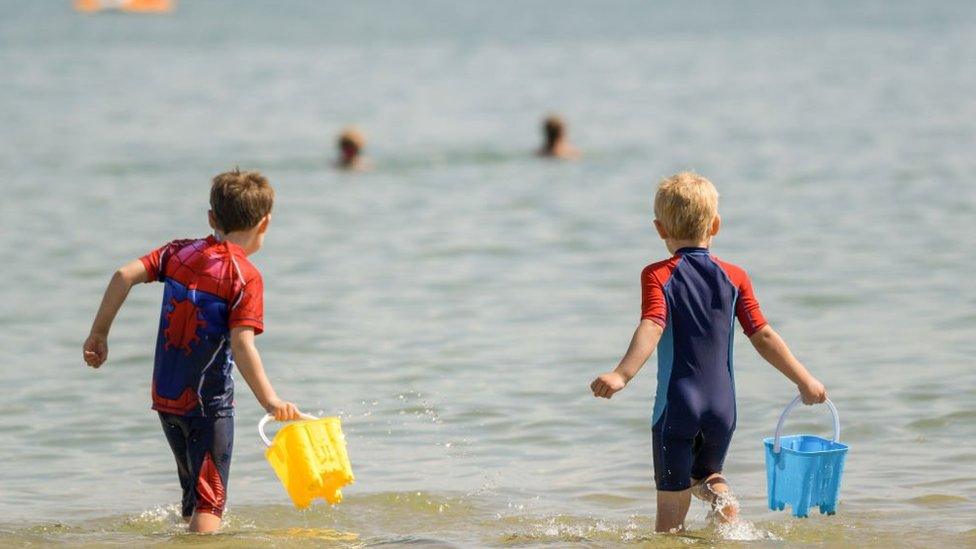
- Published12 July 2020

- Published30 July 2020

- Published29 July 2024
